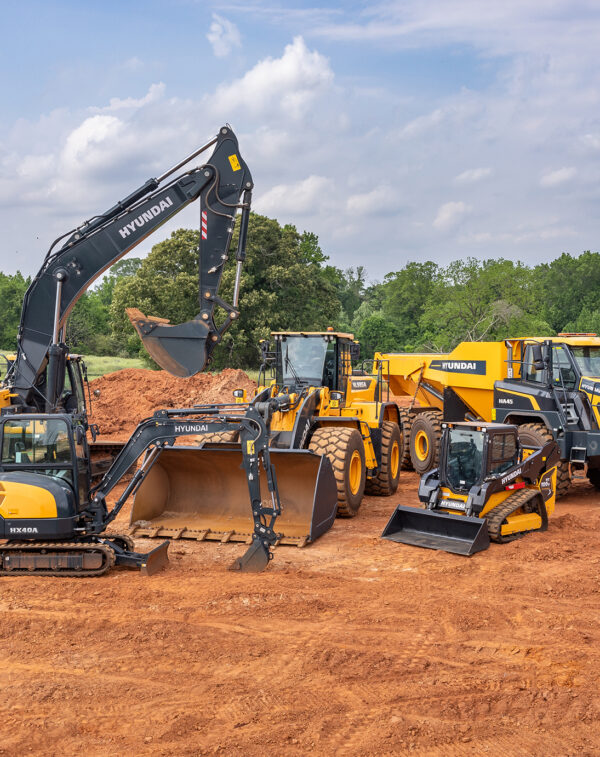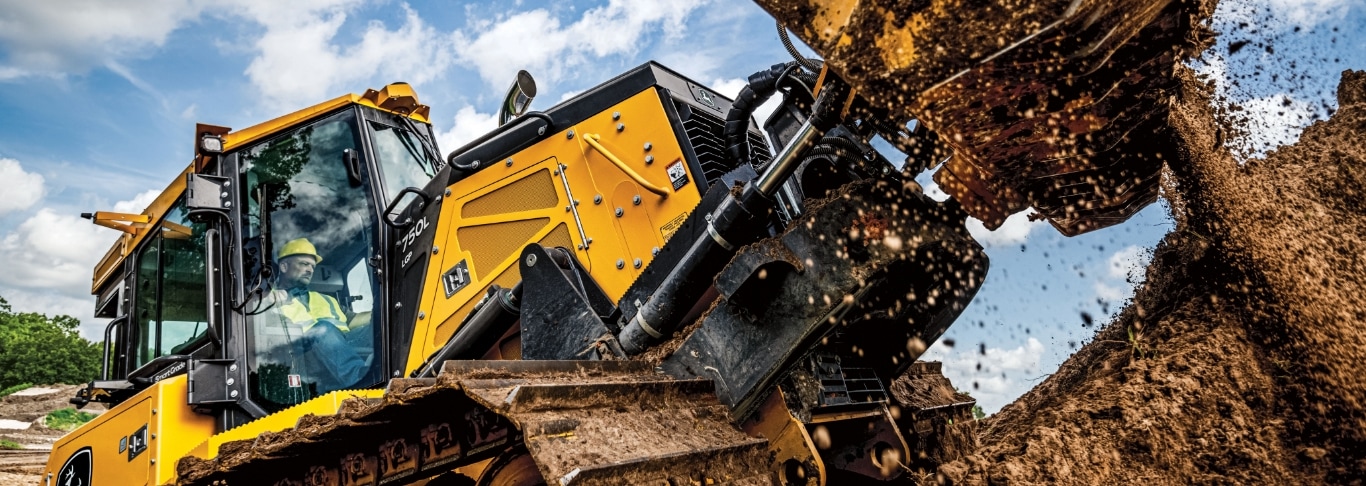Forklift Rental in Tuscaloosa AL: Versatile Training Solutions for Your Demands
Forklift Rental in Tuscaloosa AL: Versatile Training Solutions for Your Demands
Blog Article
Exploring the Financial Benefits of Leasing Building Devices Compared to Possessing It Long-Term
The decision between leasing and owning construction tools is essential for economic management in the sector. Leasing offers prompt price financial savings and operational adaptability, permitting firms to allot sources more successfully. On the other hand, ownership includes substantial long-lasting economic dedications, consisting of maintenance and depreciation. As professionals weigh these choices, the effect on capital, task timelines, and technology gain access to ends up being increasingly significant. Understanding these nuances is important, particularly when thinking about exactly how they line up with details job needs and economic approaches. What elements should be prioritized to make certain ideal decision-making in this facility landscape?

Price Comparison: Leasing Vs. Owning
When evaluating the monetary effects of renting out versus possessing building and construction tools, an extensive expense comparison is essential for making informed choices. The option in between owning and leasing can dramatically influence a company's profits, and recognizing the associated costs is crucial.
Renting building and construction equipment typically includes lower in advance prices, enabling businesses to designate capital to various other operational needs. Rental costs can gather over time, potentially surpassing the expenditure of ownership if equipment is required for an extensive period.
On the other hand, possessing construction tools requires a substantial first financial investment, together with continuous prices such as depreciation, insurance, and financing. While ownership can cause lasting savings, it also binds funding and might not give the same level of versatility as leasing. Furthermore, having tools demands a commitment to its use, which may not constantly straighten with task demands.
Inevitably, the decision to possess or rent out ought to be based on a comprehensive evaluation of specific job needs, monetary ability, and long-lasting tactical objectives.

Maintenance Expenditures and Duties
The selection in between renting and possessing construction tools not only includes financial factors to consider yet additionally includes continuous maintenance expenditures and duties. Possessing devices requires a substantial commitment to its upkeep, which consists of routine evaluations, repairs, and possible upgrades. These duties can swiftly gather, causing unanticipated expenses that can stress a budget.
On the other hand, when renting out devices, upkeep is typically the obligation of the rental firm. This plan allows service providers to stay clear of the financial worry associated with wear and tear, in addition to the logistical obstacles of organizing fixings. Rental contracts often include provisions for maintenance, indicating that professionals can concentrate on completing tasks as opposed to worrying concerning equipment problem.
Furthermore, the varied variety of tools offered for rent allows firms to select the most up to date designs with advanced innovation, which can improve performance and efficiency - scissor lift rental in Tuscaloosa Al. By choosing leasings, businesses can avoid the long-term responsibility of tools devaluation and the linked upkeep frustrations. Ultimately, examining upkeep expenses and obligations is essential for making a notified choice about whether to lease or possess building and construction equipment, significantly affecting total project expenses and functional performance

Depreciation Influence On Ownership

A considerable factor to take into consideration in the choice to have construction tools is the effect of devaluation on overall ownership prices. Depreciation stands for the decline in worth of the equipment with time, influenced by factors such blog here as use, damage, and developments in modern technology. As tools ages, its market price lessens, which can substantially affect the owner's monetary placement when it comes time to sell or trade the devices.
For building and construction firms, this devaluation can convert to substantial losses if the equipment is not utilized to its max capacity or if it lapses. Proprietors have to account for depreciation in their economic estimates, which can cause higher overall prices compared to renting. In addition, the tax ramifications of depreciation can be intricate; while it might offer some tax obligation benefits, these are frequently countered by the truth of decreased resale worth.
Inevitably, the problem of depreciation stresses the value of comprehending the lasting monetary commitment involved in possessing building equipment. Firms must meticulously evaluate just how commonly they will certainly make use of the tools and the prospective economic impact of devaluation to make an informed decision concerning ownership versus leasing.
Economic Versatility of Renting Out
Renting building tools offers considerable economic flexibility, enabling firms to allocate resources a lot more successfully. This adaptability is especially crucial in a market identified by varying job needs and varying work. By opting to lease, organizations can avoid the significant capital investment needed for purchasing devices, preserving capital for other functional requirements.
In addition, leasing tools enables companies to customize their tools options to certain project demands without heavy plant hire the lasting commitment related to ownership. This suggests that services can easily scale their devices stock up or down based upon existing and expected task demands. Subsequently, this adaptability lowers the threat of over-investment in equipment that might become underutilized or obsolete over time.
Another financial advantage of leasing is the capacity for tax benefits. Rental payments are frequently thought about overhead, enabling for immediate tax deductions, unlike devaluation on owned and operated tools, which is topped a number of years. scissor lift rental in Tuscaloosa Al. This immediate expense recognition can further boost a firm's cash money setting
Long-Term Job Considerations
When reviewing the lasting requirements of a building company, the decision between renting out and owning tools comes to be a lot more complicated. For projects with extensive timelines, purchasing tools might appear helpful due to the potential for reduced overall prices.
In addition, technological advancements pose a significant factor to consider. The building sector is advancing rapidly, with new equipment offering enhanced effectiveness and security functions. Leasing enables business to access the most up to date innovation without dedicating to the high in advance expenses related to acquiring. This versatility is especially useful for services that manage diverse jobs needing different types of equipment.
Moreover, monetary stability plays a crucial role. Possessing tools usually requires considerable capital financial investment and devaluation worries, while leasing allows for even more foreseeable budgeting and money flow. Inevitably, the option in between leasing and owning needs to be lined up with the tactical purposes of the building company, thinking about both expected and current job demands.
Verdict
In verdict, leasing construction equipment uses substantial monetary advantages over long-lasting possession. The reduced ahead of time costs, removal of maintenance obligations, and evasion of depreciation add to enhanced money circulation and monetary adaptability. scissor lift rental in Tuscaloosa Al. Additionally, rental payments function as prompt tax deductions, further profiting service providers. Eventually, the choice to rent instead than own aligns with the vibrant nature of building tasks, permitting flexibility and access to the most up to date equipment without the economic concerns related to ownership.
As tools ages, its market worth click this link lessens, which can dramatically impact the proprietor's financial placement when it comes time to trade the tools or offer.
Leasing construction tools supplies considerable monetary adaptability, permitting business to allot sources more successfully.Additionally, leasing devices allows companies to tailor their equipment selections to details task needs without the lasting commitment connected with possession.In verdict, renting out building equipment supplies considerable financial advantages over lasting ownership. Ultimately, the choice to rent out rather than very own aligns with the vibrant nature of construction tasks, enabling for adaptability and accessibility to the most current tools without the monetary concerns linked with possession.
Report this page